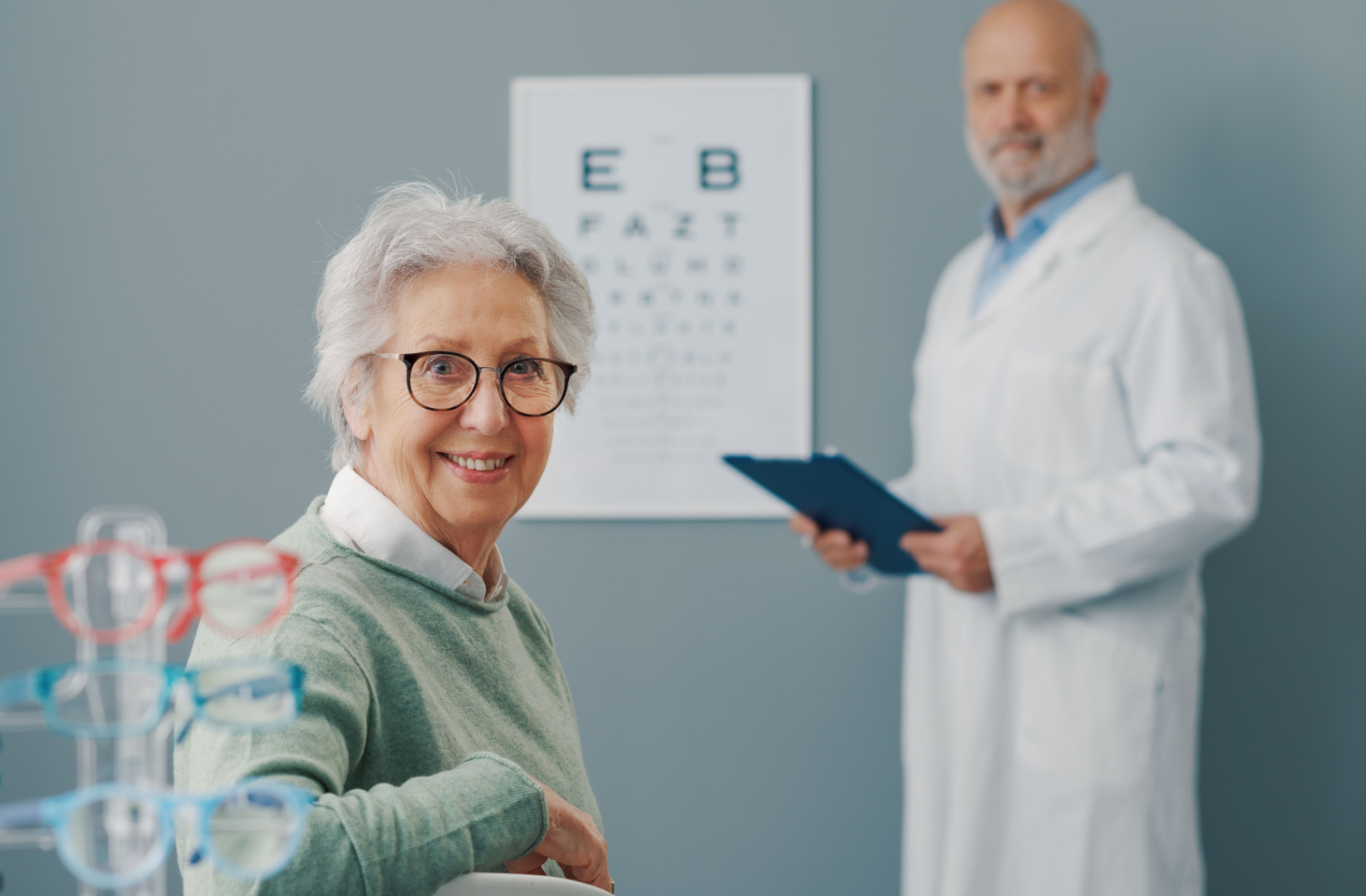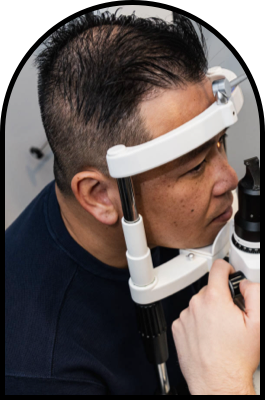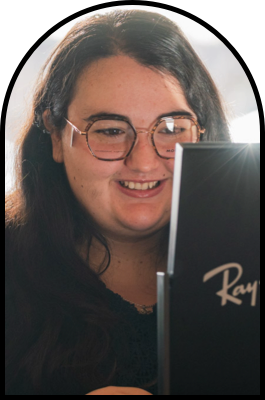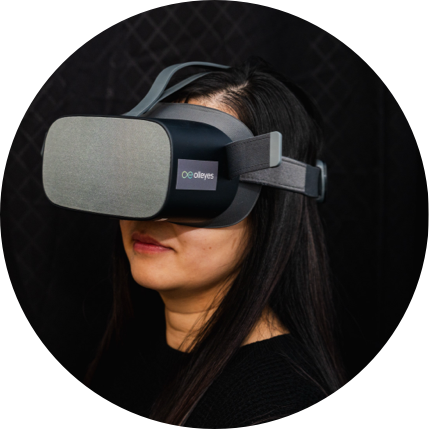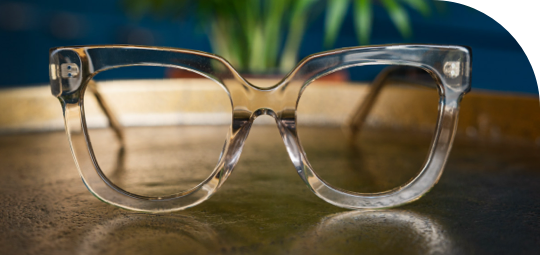Under the Alberta Health Care Insurance Plan (AHCIP), seniors aged 65 or older are eligible for 1 comprehensive eye exam every 12 months. But an important note is that although the exam itself is covered, additional tests to help screen for macular degeneration, glaucoma, and retinal diseases, and any additional needs, such as prescription glasses or contacts, will not necessarily be covered. Seniors in Alberta may be eligible for specific income-based programs for extra funding in some cases.
Even if there is a cost involved, the importance of getting comprehensive eye exams cannot be overstated. Most adults should be getting an exam at least every 1 or 2 years, depending on age and overall eye health.
Exams Coverage for Seniors in Alberta
AHCIP provides coverage for seniors aged 65 and older to receive 1 eye exam per calendar year. Seniors also qualify for a partial exam and a diagnostic procedure in the same year if needed.
In addition to the Alberta Health Care-covered exam for seniors in Alberta, there are a few other eye care services that AHCIP covers:
- Children under 18 qualify for the same exam coverage as seniors 65 and older.
- Individuals aged 19 to 65 may qualify for a medical eye exam if their optometrist deems it necessary because of a pre-existing condition, eye trauma, or an episode of illness.
There is also full coverage for certain medical conditions. Your eye doctor can help you determine whether there will be a charge for your appointment. You will be responsible for any required payments if AHCIP does not cover the services.
What Is Involved in an Eye Exam?
There is not an all inclusive answer to what happens during an eye exam because it varies between individuals and their unique eye health and vision needs. But the following are some common steps during an exam.
Pre-Exam Assessment
Your eye doctor may ask you about your health history, including any medications you are taking and any pre-existing conditions you may have, before they begin the physical exam on your eyes. They will also often ask about any symptoms you are experiencing, such as blurred vision or eye pain. This information can help your doctor determine which tests to perform during the exam.
Visual Acuity Test
The visual acuity test is one of the standard tests performed during a comprehensive eye exam. This test measures your ability to see letters and images from a distance using an eye chart. Asking you to identify the smallest letters you can see helps your eye doctor determine your visual acuity.
Refraction Test
The refraction test measures your eyes’ ability to focus light on the retina accurately. This test helps determine the appropriate prescription for corrective lenses if necessary. During the test, your eye doctor will ask you to look through a phoropter, a device that contains several lenses, and will ask you which combination of lenses provides you with the clearest vision.
Eye Movement Testing
Your eye doctor can also examine your eyes’ movements by asking you to follow a target, such as a pen or a light. This test helps detect possible eye muscle problems or other conditions that might affect your eye movement.
Eye Health Examination
A significant portion of the comprehensive eye exam involves examining the health of your eyes. This may include using a slit lamp microscope and an ophthalmoscope to examine the inside of your eyes, checking your eye pressure, and looking for any signs of eye diseases such as cataracts, macular degeneration, and glaucoma.
Importance of Getting Comprehensive Eye Exams
Many diseases that affect the eyes, such as glaucoma, can cause permanent vision loss. Early diagnosis and prompt treatment are essential in preventing total vision loss. Plus, with regular comprehensive eye examinations, your eye doctor can identify other health issues, such as diabetes and high blood pressure, in their early stages and refer you to the correct medical professional for prompt treatment.
In addition to being critical in detecting eye diseases or conditions, regular comprehensive eye exams help ensure that you have the most accurate prescription for contact lenses or glasses. Vision changes can occur gradually, and people may not realize they need a new prescription.
Eye Exam Frequency
According to the Canadian Association of Optometrists, most people should receive a comprehensive eye exam every 1 to 2 years, but annual exams are recommended for seniors. This frequency is based on age and overall eye health. It is important to listen to your optometrist, as they may recommend a different schedule based on your particular situation.
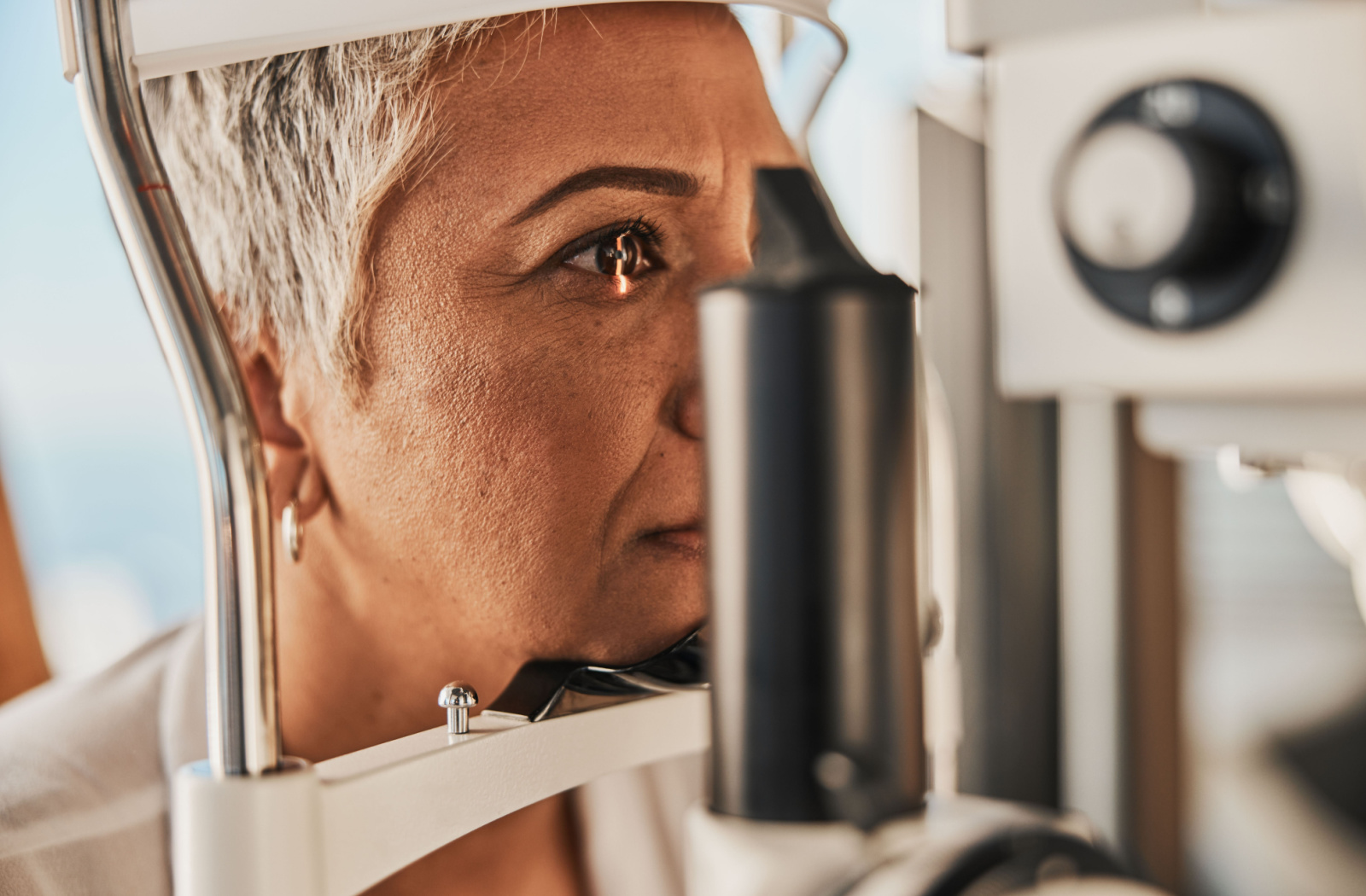
Book Your Next Eye Exam
Whether your exam is covered or not, comprehensive eye exams are a part of caring for your overall health and wellness. Contact us at Chestermere Optometry if you are due for an exam. Our team is happy to review payment options with you and help you determine whether there are any benefits available to offset the cost.


